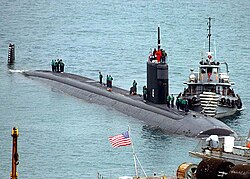 A high-level military commission is set to recommend that the Pentagon reverse its long-standing policy that bars women from being in combat. Hundreds of thousands of women are currently serving in the U.S. military, and many of them are in Iraq and Afghanistan. According to the Pentagon's policy, women are, and always have been, barred from taking part in any ground combat operations.
A high-level military commission is set to recommend that the Pentagon reverse its long-standing policy that bars women from being in combat. Hundreds of thousands of women are currently serving in the U.S. military, and many of them are in Iraq and Afghanistan. According to the Pentagon's policy, women are, and always have been, barred from taking part in any ground combat operations.
But in reality, women are already in the thick of the fight — and an upcoming report will recommend that the Pentagon acknowledge the reality on the ground and allow women to be assigned to combat units.
Panel To Recommend Allowing Women In Combat
With Air Force's new drone, 'we can see everything'
 In ancient times, Gorgon was a mythical Greek creature whose unblinking eyes turned to stone those who beheld them. In modern times, Gorgon may be one of the military's most valuable new tools. This winter, the Air Force is set to deploy to Afghanistan what it says is a revolutionary airborne surveillance system called Gorgon Stare, which will be able to transmit live video images of physical movement across an entire town.
In ancient times, Gorgon was a mythical Greek creature whose unblinking eyes turned to stone those who beheld them. In modern times, Gorgon may be one of the military's most valuable new tools. This winter, the Air Force is set to deploy to Afghanistan what it says is a revolutionary airborne surveillance system called Gorgon Stare, which will be able to transmit live video images of physical movement across an entire town.
The system, made up of nine video cameras mounted on a remotely piloted aircraft, can transmit live images to soldiers on the ground or to analysts tracking enemy movements. It can send up to 65 different images to different users; by contrast, Air Force drones today shoot video from a single camera over a "soda straw" area the size of a building or two.
Smoking Ban Kicks in on Navy Subs
 Starting Jan. 1, one of the liveliest spots aboard most submarines will wither away into the history books. RIP, Smoke Pit. Its death was scripted in April, when Navy officials announced smoking would no longer be allowed on submarines at sea. The reason: Testing showed that despite air filtering, there were "unacceptable levels" of secondhand smoke on submerged submarines.
Starting Jan. 1, one of the liveliest spots aboard most submarines will wither away into the history books. RIP, Smoke Pit. Its death was scripted in April, when Navy officials announced smoking would no longer be allowed on submarines at sea. The reason: Testing showed that despite air filtering, there were "unacceptable levels" of secondhand smoke on submerged submarines.
Chief Petty Officer Robert Mueller Jr. used to head to the smoke pit before and after his shifts as assistant navigator aboard the submarine Albany.
Veterans of recent wars confront grim employment landscape
 "I have a passion to be a cop," said Janssen, 23, a fitness buff who dabbles in mixed martial arts. "But no one is hiring."
"I have a passion to be a cop," said Janssen, 23, a fitness buff who dabbles in mixed martial arts. "But no one is hiring."
Janssen's experience is common among the 2 million veterans of the long-running wars in Iraq and Afghanistan. As they return home to the worst labor market in generations, the veterans who are publicly venerated for their patriotism and service are also having a harder time than most finding work, federal data show.
Protesters at Beale AFB decry treatment of alleged WikiLeaks figure Manning
 Peace groups outside the main gate of Beale Air Force Base on Wednesday protested the treatment of the private suspected of handing secret reports over to WikiLeaks. They also called on military personnel at the base to resist war and the use of drones.
Peace groups outside the main gate of Beale Air Force Base on Wednesday protested the treatment of the private suspected of handing secret reports over to WikiLeaks. They also called on military personnel at the base to resist war and the use of drones.
Protesters from Veterans for Peace, CodePINK and other groups asked for "basic constitutional principles and human rights" be extended to Pfc. Bradley Manning. Manning is suspected of downloading thousands of secret reports and diplomatic cables and handing them over to WikiLeaks.
U.S. military sexual abuse 'staggering'
 Every year, rape increases at an alarming rate within American military institutions – and even males are victims of the cycle. In fact, due to raw demographics, one can roughly surmise that most victims of sexual abuse in the military are male.
Every year, rape increases at an alarming rate within American military institutions – and even males are victims of the cycle. In fact, due to raw demographics, one can roughly surmise that most victims of sexual abuse in the military are male.
Regardless of gender, reports of victims of military sexual assault have been increasing. In 2007, there were 2,200 reports of rape in the military, whilst in 2009 saw an increase up to 3,230 reports of sexual assault.
Pregnant vets may be at higher risk for mental health problems
 Female veterans who become pregnant may be at more risk for mental health disorders such as post-traumatic stress disorder, depression and anxiety, a study finds.
Female veterans who become pregnant may be at more risk for mental health disorders such as post-traumatic stress disorder, depression and anxiety, a study finds.
Researchers looked at data on 43,078 women who were veterans who served in Afghanistan or Iraq and were treated at the Veterans Health Administration over five years. Among the study participants, 32% of women who were pregnant had a mental health diagnosis, while 21% of women who were not pregnant received a mental health diagnosis.
More Articles...
Page 57 of 99

 Military Glance
Military Glance






























